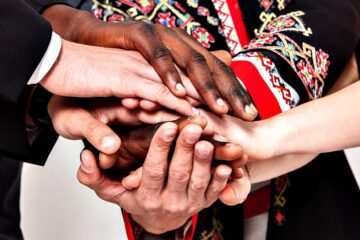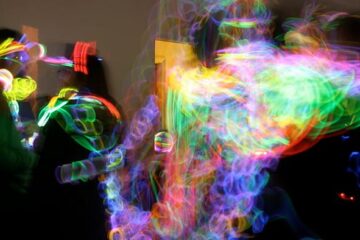Over at the University of Notre Dame’s Church Life Journal my old Patheos colleague Sam Rocha is featured interviewing EWTN’s Gloria Purvis. It’s a long, deep and sometimes painful read, and I highly recommend it.
Gloria, for any who do not know, is the host of EWTN’s “Morning Glory” radio program, and her parents named her well! She is an African American Catholic woman of bold faith who gives ready witness whenever and wherever. In recent weeks she has been the subject of hasty rumors, unfair speculation, plain-stupid twitter denunciations, and more for speaking as a Black woman living within the racial realities — some obvious, some less so — of the United States and the Catholic Church. It is a wide-ranging interview and Sam Rocha, while interspersing his own thoughts here and there, gives Gloria lots of room to share her thoughts on everything from W.E.B. DuBois to Aquinas to Pope Paul VI, to slavery, to identity and imagery, to the place for righteous anger within the life of faith, and more. I loved the whole interview but I especially appreciated Gloria’s more personal thoughts:
I remember Pope Paul VI saying something along the lines of Black people, bring your gift of Blackness to the Church. If only all the people would see it as a gift. If people could only see this as a gift instead of as something that we need to Christianize and by “Christianize” they mean Europeanize. And that’s a problem. I remember I was helping out a girlfriend of mine that was doing RCIA at another church and she was teaching the class with a very nice young white man and he was telling her that some of the names of the people that were coming into the church, we needed to give them Christian names. She was like, well, what do you mean? And he was saying they were at a disadvantage because of their names. Their names weren’t like David, they were things that he might find, he found, too problematic. And she said, well, they might be the first St. Jalipa or whatever it is, you know; what’s wrong with these names he thought were a little too peculiar? She challenged him on it and I thought, that’s another problem too: They can’t see that what we bring might even inform or could be saintly…
And this, too:
You’ve got to look respectable to white people and that includes how you worship, how you dress, how you talk, the God that you worship. You don’t want to be a threat to white people. You don’t want to frighten them. And, again, I think operating in that space doesn’t allow us to operate as free full human beings, made in the image and likeness of God, to have agency and a full range of emotions. You see that tension when people think of the Black church, particularly people who are outside of the Christian tradition, and even some of us in it, and get the sense that we must be all okie-dokie, that we’re not allowed to be angry or express emotion because it’s not considered reverent, it’s not considered holy. I think about the Church Fathers having fist fights! I think of that. It is almost a fear of a Black rage that would be unchecked.
And I think to myself: If we have not burned this country down by now, what makes you think we’re going to? That’s another sign of God’s grace on my people, in our heart. Our reaction to these gross injustices isn’t to then exert the same gross injustice on the people that did this to us. We may be angry, and we may march, and we may even cause some civil disobedience, but we’ve never gone out and said, we’re going to just have widespread killing of white people; indiscriminate, widespread killing of white people. It’s always been, let’s come to the table and these are our demands, and this is what we want, because we have inherent dignity. So, I can see the tension that Woodson was talking about, but at the same time, I also say that if we really understand our faith, we see that this anger, this righteous anger, absolutely should be propelling us to seek justice. There is nothing wrong with that.
Like I said, it’s a long, worthwhile read. Don’t miss it.


